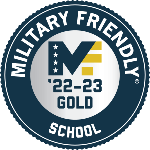Faculty Consulting and Research
Faculty Consulting and Research Information / Forms
Connecticut State Colleges and Universities
Three Rivers Community College
Procedures for Faculty Consulting and Research With Public or Private Entities Requests
Introduction
The Connecticut State Colleges and Universities System (“CSCU”) adopted a policy and
a list of frequently asked questions on 11/21/13 regarding faculty consulting agreements and research projects with public and private entities. The policy applies to Three Rivers Community College’s (“TRCC”) full and part-time faculty, including adjuncts and non-credit lecturers, and requires that procedures be promulgated at TRCC to manage and account for such agreements and projects, and provide information semi-annually to an oversight committee at CSCU established pursuant to the statute. The information provided will be reviewed to assure that statutory ethical requirement are met and that no faculty member:
1) Inappropriately uses TRCC and/or CSCU proprietary information;
2) Consults or performs consulting or research in a manner that interferes with the proper discharge of their duties; or
3) Inappropriately uses their association with TRCC and/or CSCU in connection with any consulting agreements and research projects outside of the faculty member’s primary responsibility as an employee of TRCC.
Scope
Faculty professional activities such as consulting or engaging in a research project for a public or private entity often are useful in maintaining and enhancing the faculty member’s academic scholarship and competence. The value of these outside activities is recognized through Collective Bargaining Agreements and statute and regulation. However, the primary responsibility of the faculty member during the academic year is to TRCC.
Consulting is defined as any additional professional activity or services to a public or private entity performed by the faculty member that is:
1) Beyond the assigned duties of the faculty member;
2) Professional in nature;
3) Based on the faculty member’s discipline; and
4) One for which the faculty member receives compensation.
Research is defined as a systematic investigation, including, but not limited to, research development, testing and evaluation, designed to develop or contribute to general knowledge in the applicable field of study.
There is a set of purely academic activities that faculty are normally expected and encouraged to undertake. Such activities would include, but are not limited to, reviewing books, articles and research proposals (i.e. federal grant study sections), presenting occasional lectures, speeches, and colloquia to non-profit entities, refereeing of manuscripts, creation of works of art, serving as a member of thesis committee, or case-review. The nature of such activities will vary from one discipline to another – but the underlying principle is that they are part of the faculty member’s expected academic professional development.
All consulting done by the faculty member must conform to the following conditions:
1) Consulting activities must not interfere or conflict with the execution of the faculty member’s normal duties;
2) TRCC must be reimbursed at market rates for TRCC-owned facilities, equipment or materials used in the faculty member’s consulting activities;
3) Consulting activities must not create any conflict of interest with the TRCC and/or CSCU, or violate State statutes related to conflicts of interest.
Prior to engaging in consulting and/or research activities, the faculty member must complete the compliance form for “Reporting of Research or Consulting with Outside Public or Private Entity” and submit the form to the Office of the Dean of Academic and Student Affairs at TRCC. Such requests must be submitted sufficiently in advance of the start of the consulting and/or research activity to allow for its appropriate review by TRCC’s President and Dean. Further, new forms must be completed and approved prior to making substantial changes to a previously approved activity. Consulting requests must be based on the faculty member’s professional expertise or prominence in his/her field.
Procedure
Per the Board of Regents (“BOR”) Policy on Faculty Consulting and Research with Public or Private Entities, TRCC shall establish internal operating procedures that shall ensure, to the extent possible the:
1) Disclosure, review and management of conflicts of interest relating to any such agreement or project;
2) Approval of TRCC’s President and Dean of Academic and Student Affairs prior to any such member entering into any such agreement or engaging in any such project
3) Referral of any failure to comply with the provisions of this policy or procedure to the applicable disciplinary process outlined in the Collective Bargaining Agreement.
At the start of each semester (Fall and Spring) the Director of Human Resources shall distribute to all full-time and part-time faculty members, including adjuncts and non-credit lecturers, information as promulgated by the BOR’s Policy on Faculty Consulting and Research with Public or Private Entities. This includes the Board of Regents policy, the Compliance Form for Reporting of Research or Consulting with Outside Public or Private Entity, and a FAQ sheet prepared by the BOR to assist faculty members in: understanding their responsibility under Connecticut General Statutes Section I-84(r)(2) and Board of Regents Policy; and providing faculty members with requirements of the policy and when consulting and research activity should be reported.
Information provided on the compliance form must include the following:
1) Faculty member’s Name;
2) Academic Rank/Discipline;
3) Department;
4) Description of consulting service or research project with enough detail so that the approver may determine whether such activities conflict with one’s state responsibilities and disclosure of material use of state resources;
5) Name of the Public/Private Entity;
6) Dates of engagement to determine the total number of days expected to complete the consulting activity; and
7) Additional information regarding remuneration or other matters must be provided, if requested
It is understood at the time of a request form being considered for approval that all dates and times of the consulting activity might not be known. As these dates and times become known, the faculty member is expected to provide them to the Dean of Academic and Student Affairs. In all cases, these notifications should be at least one day in advance of any consulting work so that the Dean can ensure that the faculty member’s assigned job duties are fully addressed. Such notifications must be made in writing to the Dean and emails are acceptable. The need for such prior notification of such dates and times only applies if such dates and times are during normal work time.
In general, all full and part-time faculty members, including adjuncts and non-credit lecturers, who are hired/contracted by a public or private entity to perform consulting or research activities during the Fall and Spring semesters coterminous with his/her regular faculty duties must complete the Compliance form disclosing consulting and/or research with private and/or public entities. Faculty members must also submit a Compliance form when consulting or research activity occurs mid-semester or changes from when submitted and approved at the start of the semester.
Compliance Review
TRCC’s President and Dean of Academic and Student Affairs will make every effort to turn Compliance form submissions around as quickly as possible. During the semester, such review and reply to approve the faculty member’s Compliance form should not take more than 48 hours ordinarily.
TRCC’s President and Dean of Academic and Student Affairs shall adhere to the following steps to determine compliance:
a. Disclosure, review, and management of conflicts of interest relating to such agreement or project;
b. Approval of TRCC’s President and Dean of Academic and Student Affairs prior to any such member entering into any such agreement or engaging in any such project;
c. Referral of any failure to comply with the provisions of this policy or institution procedure to the applicable disciplinary process, as outlined in the Collective Bargaining Agreement;
d. Review of the Collective Bargaining Agreement between the Board of Trustees of Community-Technical Colleges and the Congress of Connecticut Community Colleges for the assigned duties of the Faculty;
e. Determination if request is professional in nature and does not interfere with the proper discharge of his/her employment with TRCC (scheduled classes, advising duties, office hours, and other institutional responsibilities);
f. Verification if activity is based in the faculty member’s discipline and he/she does not inappropriately use the institution’s proprietary information in connection with said agreement;
g. Determination if the faculty member receives compensation and there is no conflict of interest; and
h. That the name of the entity, description of work and dates of engagement are clearly specified.
The compliance form must be reviewed and signed by the TRCC’s President and Dean of Academic and Student Affairs. The Dean will determine whether to recommend or not recommend the activity. The President will indicate whether or not the activity is “in compliance” or “not in compliance.” The President may designate the Dean of Administration to approve requests during his/her absence. The original of all signed forms are submitted to the Human Resources Office and placed in the faculty member’s personnel file. Copies of the reviewed and approved forms will be sent to the faculty member and the Dean of Academic and Student Affairs.
Winter Intersession & Summer Session Approval Process
Faculty members may participate in consulting and research activities during the winter intersession and summer session. However, if college facilities or materials are used in conjunction with the activity, the faculty member follows the same request process and the compliance form should be completed.
Reporting
TRCC shall provide a report to the BOR President’s Office and a copy to the Director of Internal Audit of any such approved activities on or before May 1 and November 1 of each year, even if no activity occurred. In addition, the Director of Internal Audit for CSCU shall audit each institution’s compliance with the established internal procedures and this policy annually.
Information provided on the Faculty Consulting and Research Projects Semi-Annual Report must include the following:
1) Faculty Member’s Name;
2) College Department/Discipline;
3) Name of Public/Private Entity;
4) Duration of Project (including begin & end dates)
5) Brief Description of Consulting Duties or Research Project
6) Decision regarding In Compliance/Not In Compliance
Sanctions
Any faculty member who intentionally provides misleading or false information during the course of the approval process or who continues formally disapproved consulting or research activity will be subject to disciplinary process in accordance with such member’s collective bargaining agreement or employment agreement. Such disciplinary action may include, but is not limited to: letter of reprimand; loss of the privilege to continue to engage in consulting activities; suspension; or dismissal.
Grievance Process
The faculty member may appeal, in writing, to the BOR Vice President for Human Resources within ten (10) calendar days upon receiving written notice that the outside work was not in compliance. The faculty member shall receive a written response from the BOR Vice President for Human Resources within ten (10) calendar days stating the reasons for the decision. Should the faculty member disagree with the decision of the BOR Vice President for Human Resources, the matter will be submitted to the Office of State Ethics within ten (10) calendar days from the day the Faculty receives the response. The BOR Vice President for Human Resources may elect to submit the matter directly to the Office of State Ethics for its opinion. This election by the BOR Vice President for Human Resources would satisfy the obligation to respond as stated above. The determination by the Office of State Ethics shall be final and not subject to the grievance procedure.
Record Retention
All information obtained as part of this policy and protocol shall be held in strictest confidence in the Human Resources Office and at the BOR System Office review level. Documentation shall be retained for the appropriate retention period for employment records promulgated by the State of Connecticut, TRCC, or BOR System Office policies and procedures. Unauthorized disclosure of information or use for any party outside of stated reviewers or other approved and necessary reviewers will not be tolerated and may subject the discloser to disciplinary action.
Statutory/Administrative Regulation:
Connecticut General Statutes, Section I-84(r)(2)
 TRCC EXTRANET
TRCC EXTRANET




